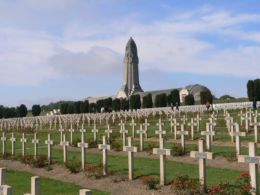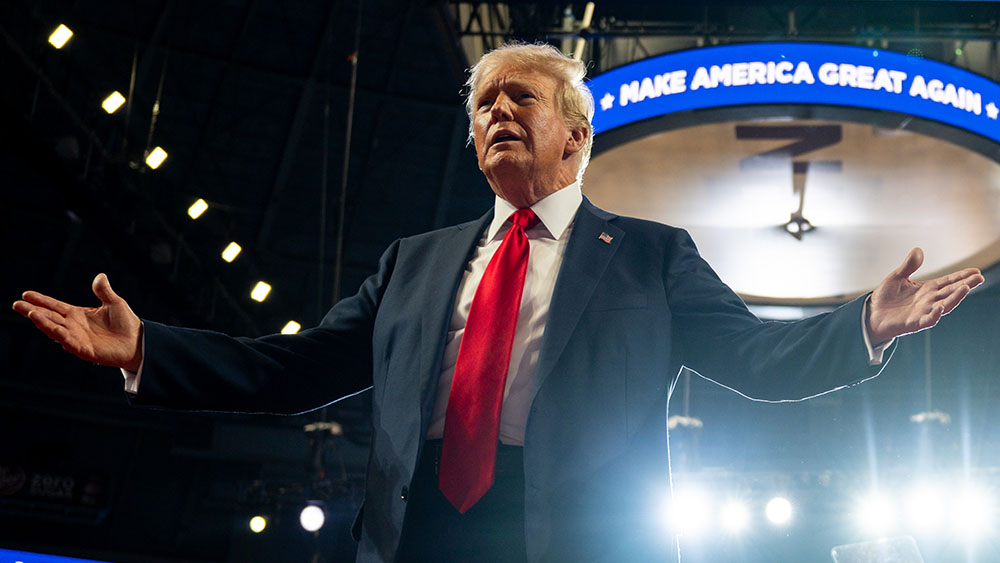Remember the Fallen, Fight for the Future
1,006 words
The ceremonies observed across the Western world to memorialize the fallen warriors of the past are powerful exercises. They are imbued with memory, meaning, and grief. Our ancestors fought because of their honor and sense of duty, as well as for their countries, families, friends, neighbors, and a whole host of other, more mundane reasons. When we commemorate the wars of the past, we pay our respects to the fallen, we reinforce the ties that bind us together as a people, and we are reminded of our own strength. When we remember our ancestors and their past deeds, especially in times of war, we are revivified by their heroism.
Tragically, noble sentiments such as these pushed men to war against their racial kin. One of the great lessons of the twentieth century for those of us who wish to inculcate a sense of white identity or white racial consciousness in our people is that so often the celebrated, lauded actions of the martial past were conducted against peoples with whom we share the same blood.
It is difficult to see the First and Second World Wars as anything short of a monumental dysgenic event of racial death. Never again should the European-derived peoples go to war against one another. The fearsome martial powers of our people should be leveraged against our true enemies — those who seek to enslave our people, drive us apart, and force us from our ancestral homelands. By our acts of remembrance, we honor both them and their sacrifice. Going forward we must aim to heal past wounds while forgiving the misguided conflicts of the past so as to fight our true enemies.
White identity in its revivified, newly-constituted form must incorporate the heroic sensibilities of our forebears. Before an outward journey can take place, an inner journey must occur. The hero must decide the actions he has to take before he undertakes them.
While looking at yourself in the mirror, have you ever wondered who is staring back at you? Your appearance is your own, yet it is a conglomeration of features handed down to you from your parents, grandparents, and your great-grandparents: your eyes, nose, height, hands, the color of your hair. Your physical features are a museum. Your ancestors may be long dead as individuals, but they are still very much alive as fragments within you.

You can buy Greg Johnson’s White Identity Politics here.
Complex behaviors such as your intelligence, ingenuity, adventurous spirit, happiness, and susceptibility to sadness are all qualities that have been passed down to you from your forebears as well. Even one’s fear of crowds or extroversion are linked to the distant past. These lives have been lived before and they are being lived again. Our lineage and our past are also present in the languages that we speak and in the very customs we hold dear. We carry the past with us. We stand upon the shoulders of our ancestors when we honor their memory. [1]
Victimhood may be fine for others, but it is not enough for us. Emphasis should be placed on the heroic nature of our past. Rather than placing the pioneering, heroic, adventurous, and noble in the background, it should once again be brought to the fore. Our people are looking for strength, not more weakness. The heroic should be emphasized in all aspects of life. The heroic should be honored in literature, history, and everyday life once again. Victimhood and its related states of self-pity should be actively discouraged. Be brave, and encourage others to take up the mantle of bravery. Be brave enough to protect your family, your property, your group, your people, and your race. But we must always look to the past. The great heroes of yesteryear are not remembered for their apologies or for tolerating the presence of feral interlopers and brigands. They are remembered for their feats of heroism, their ferocity in battle, and for crushing their enemies.
This does not mean being reckless or foolhardy, of course. The war that we now find ourselves in is a metapolitical one, a war of ideas. The key to securing our interests is through the inculcation of white identity in our neighbors, our friends, and our fellow countrymen. It is by way of non-violent metapolitical action that this will be achieved. Everything that we say, write, and meme is of incalculable value in this fight in the realm of ideas. We will foster a sense of who we are as white people through podcasts, articles, discussions, and our real-world actions.
We have a defined in-group that has its own interests. Despite our disparate regional and linguistic differences, we should all coalesce around the commonality of race. Race is a biological reality. We are white, and we have our own interests as a group. Through metapolitical action, and eventually through overt political action, we will be able to exert our influence as a distinctive group. We will be able to force the wrong elected officials to make the right decisions. It will be a long road, but the seeding of white identity is the most important step towards achieving that goal. By engaging in a war of position in the realm of ideas and against the prevailing dispensation, we will change things pertaining to our interests for the better.
For white majority countries to survive, it is clear that our movement must foster a sense of white identity and reject globalism. We must remember the sacrifices made by our ancestors, who established the greatest civilizations the world has ever seen and carved white settler nations out of the primordial wilderness. We must inculcate a white racial consciousness and a sense of white identity in ourselves, our families, and our friends.
There is no Israel for us. We need to reclaim our homelands and regain the sense that they are ours. We must look to the past to regain the future.
Note
[1] David W. Anthony, The Horse the Wheel and Language: How Bronze-Age Riders from the Eurasian Steppes Shaped the Modern World (Princeton: Princeton University Press, 2007), 3.




